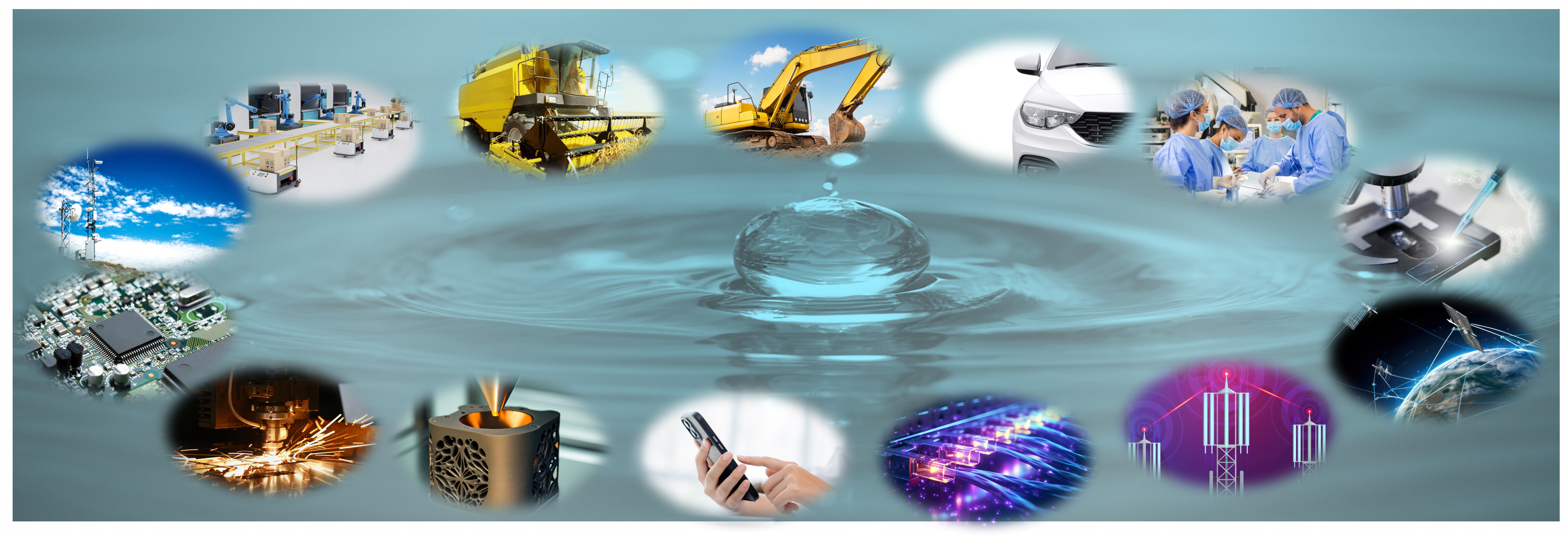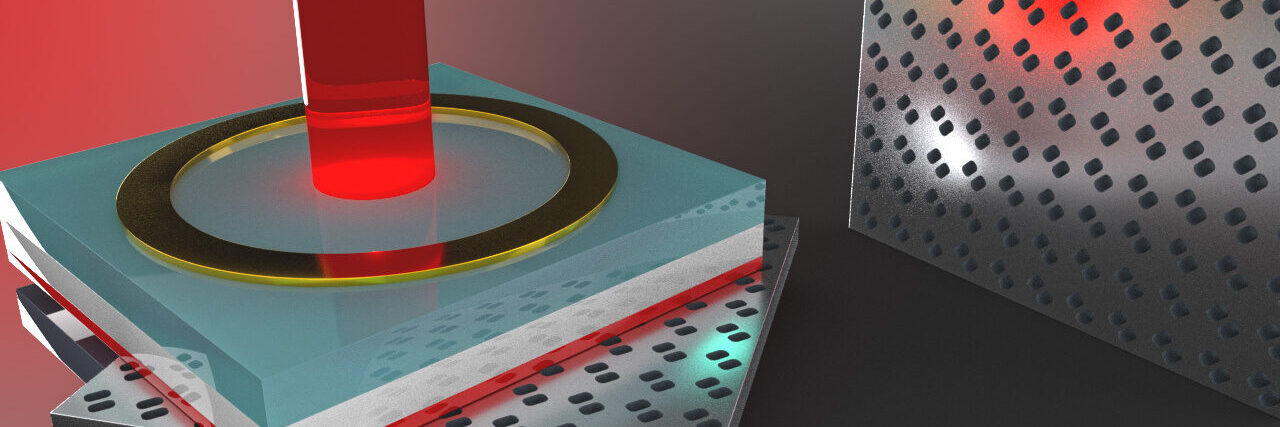Kyoto University PCSEL Research Center
Bridging Kyoto University’s Photonic-Crystal Surface-Emitting Laser (PCSEL) technology to industry, we aim to drive innovation and contribute to realizing Society 5.0.
Compact and cost-effective high-efficiency semiconductor lasers have significantly contributed to society, particularly in fields like optical communication, optical storage, and lighting, by expanding their modulation speed and wavelength range. However, conventional semiconductor lasers faced challenges in applications requiring both high power and high beam quality, such as smart mobility and smart manufacturing. This is because increasing output by enlarging the emission area would degrade beam quality. Consequently, they lagged behind bulky lasers like CO2 and fiber lasers in high-power, high-beam-quality operations. Moreover, conventional lasers, including semiconductor lasers, were unable to control beam patterns or direction on-chip, necessitating external optical components.
Now, with the development of ‘Photonic-Crystal Surface-Emitting Lasers (PCSELs)’ which were invented in 1999 at Kyoto University, this paradigm is expected to change; PCSELs are attracting much attention for their simultaneous achievement of high output power and high beam quality (=high brightness) as well as their exhibition of functionalities that are not easily achievable with other types of lasers, such as polarization and beam-pattern control as well as on-chip beam-direction control, which eliminates the need for bulky external optics.
To strengthen the research and development of PCSELs, Kyoto University has established ‘Center of Excellence for PCSELs (PCSEL-COE)’ in 2020. To advance the functionality of the PCSEL-COE and bridge the gap between University and industry, this independent organization, ‘Kyoto University PCSEL Research Center (General incorporated association)’, was newly established in December 2024. We seek to respond to global needs, increase innovation opportunities, and accelerate the societal implementation of PCSEL technology.


